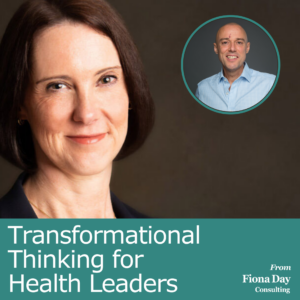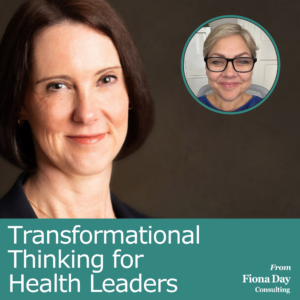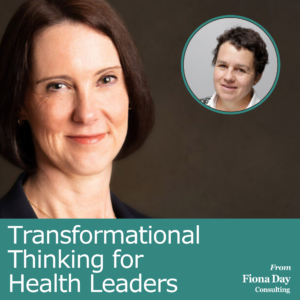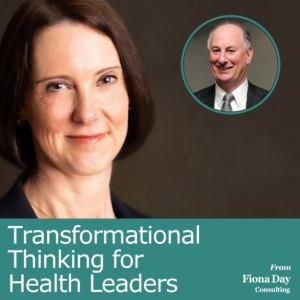Have you heard of the third wave of behaviour science yet? I’ve spent my career studying, using, teaching and commissioning behaviour change interventions to improve the health of the population and/ or the health of the workforce. Of course as a Public Health physician, I believe in changing the wider determinants of health – AND I also firmly believe in improving health one person at a time and empowering people to develop their own internal psychological resources to change and improve their own lives and wellbeing.
I’ve spent the last ten years getting back up to speed with the latest psychological theory and behaviour change science, and I am so excited by what I’ve found that I wanted to write my final blog for the year on it – hoping that 2017 will be the year that UK Public Health Leaders catch the third wave of behaviour change theory.
A few weeks ago I attended the Contextual Behaviour Science UK and Ireland conference in Edinburgh, my alma mater including my intercalated psychology degree almost 25 years ago. As I had hoped, I met loads of top scientists and psychology clinicians from across the country sharing their work – replicating work done in other parts of the globe locally, as well developing promising new frontiers of their own. It was very inspiring, and yet I wonder how many UK public health leaders know that the third wave is rapidly growing into a tsunami of evidenced based behaviour change interventions covering everything from transdiagnostic mental health and wellbeing interventions, lifestyle change, chronic disease management, clinician consultation styles (health coaching), practitioner health, adolescent risk taking, careers coaching and mentoring, prenatal health and parenting…. Behaviour change science is behind most if not all public health interventions!
The third wave of behaviour change theory.
The third wave of behaviour change theory builds on the first wave (Skinner’s behaviourism), which became the second wave (Ellis et al’s Cognitive Behaviour Therapy). The first wave got stuck because it was unable to explain some of the aspects of language and cognition, and the second wave is getting stuck because it seeks in large part to change the content of thought (in lifestyle changes, this would equate to avoiding situations where the cigarette/ drink/ biscuit was likely to be present, or seeking to control thoughts by trying to control them). The ‘third wave’ approaches have a radically different approach with promising results, and what is crucial to understand about the third wave is that it is the relationship to thoughts and internal events which is targeted and not the content of thoughts. If you try to push a thought below the surface, it pops up again, usually more strongly, and with new or increasing feelings of defeat and shame- changing the relationship to ‘I know you’re there alongside me (notice and name the unpleasant thought, feeling or sensation) and I have the ability to choose how I wish to respond in my behaviour’ affords us the opportunity to make conscious choices in our actions. As Holocaust survivor and psychiatrist Victor Frankl wrote, ‘Between stimulus and response there is a space. In that space is our power to choose our response. In our response lies our growth and our freedom’.
One of the most promising ‘third wave’ approaches is Contextual Behaviour Science based on the psychological theory ‘Relational Frame Theory’. If you are like me and love to know the science behind the practice then this one’s for you, but if you just need to know the essentials to be able to understand the interventions then start with understanding how individual’s ‘psychological flexibility’ can be increased. I recommend familiarising yourself with ‘Acceptance and Commitment Therapy’ (ACT pronounced ‘act’) adapted for the relevant setting, eg:
- lifestyles and addictions
- occupational health
- coaching
- chronic disease management
- mental illness prevention
- treatment and recovery.
Psychological flexibility is emerging as a key construct for all areas of public health and wellbeing, and is being developed and used all round the world, as evidenced by the nearly 200 RCTs published – of which 83% have been in the past 5 years. At the leading ACT and RFT academic Prof Steven Hayes’ Acceptance and Commitment Therapy 2 day intensive intermediate clinical skills building training in London in September (which I attended thanks to the generosity of Contextual Consulting), I spent 2 days in a basement with 300 clinical psychologists and IAPT workers from mainly the South East of the UK- all of whom were updating their clinical skills from traditional CBT to 3rd wave because they had seen the results for themselves. In Seattle, researchers are testing lifestyle interventions (https://www.youtube.com/watch?v=tTb3d5cjSFI Jonathan Bricker’s TED talk has just passed 1M views), and in Australia their primary care chronic disease management training and workbooks use ACT based approaches, and the third wave is growing and spreading.
So what is psychological flexibility?
There are 6 main dimensions which lead to an increase in psychological flexibility and I will blog on them in more detail in the New Year. In a gross oversimplification, by learning to accept that some thoughts, feelings and sensations/urges are just ‘passengers on your bus’ alongside us, we can learn to take committed action based on our chosen life directions (values). By stopping struggling and trying to control unwanted internal experiences, and being willing to experience some discomfort, we can learn to drive our own bus in the direction we choose. It’s not easy, it doesn’t lead to ‘happiness’, but it does lead to lives which have meaning, purpose, kindness to self and others, and a sense of direction, all of which directly lead to an increase in perceived wellbeing in the face of difficulty. If you read one book over the festive season to understand ACT and psychological flexibility in an easy way, read Russ Harris ‘The Happiness Trap’ or Joe Oliver et al’s ‘ACTivate your life’, you won’t be disappointed.
Let’s ride on the tsunami of evidence in 2017. Public Health Leaders- please get ACT into the water supply for the sake of the population’s health!
Dr Fiona Day is the world’s only Leadership Coach with advanced coaching psychology, medical and public health qualifications (MBChB, FFPH, BPS Chartered Psychologist in Coaching Psychology, EMCC Master Practitioner Coach & Mentor) and is in a unique position to help you and your teams to flourish. Fiona specialises in coaching medical and public health leaders, is a coach Supervisor, and an EQA Foundation Award Holder. Get 3 hours of FREE CPD with Fiona’s Health Career Success Programme here. Book a free confidential 30 minute Consultation with Fiona here.









